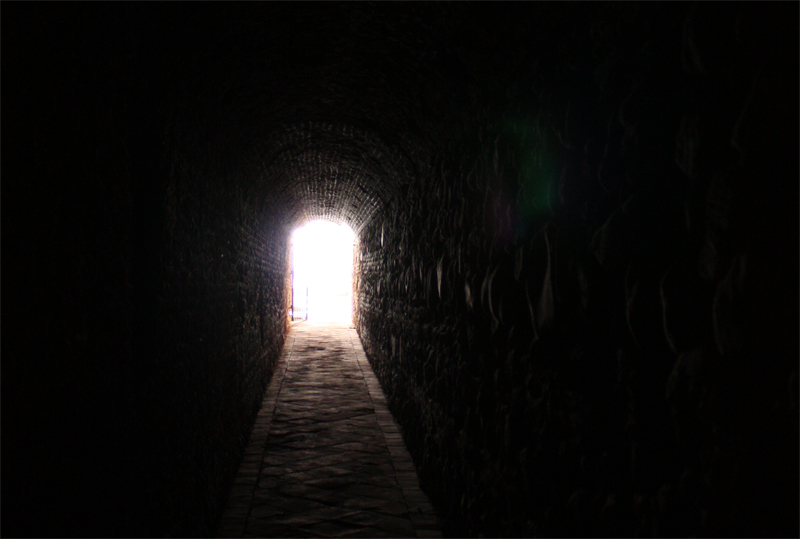It’s literally the world’s oldest argument. Before Creation, God consulted with the angels, asking their opinion of His new enterprise. They argued against it: “What is man that You should remember him?” (Psalms 8:5). When God desired to give us His holy Torah, once again the angels countered, “Leave the Torah with us and we will properly honor and cherish it!” (Shabbat 88b). Thank goodness, God chose not to side with them then, either.
But why didn’t He? Angels are absolute servants of God; they certainly appreciate His greatness and understand the true value of the Torah. This wasn’t about selfishly defending their personal honor – it was about wanting to guard and protect matters of eternal loftiness. Hey, just looking at the daily headlines and the general laxity toward Torah values, we can confirm their fears. Wouldn’t it have been better for the Torah to remain in the realm of those who are forever holy and uplifted? Why did God allow something so precious to fall into a state of disrespect and permissiveness?
Joseph understood the ways of God. Our parashah tells us, “Jacob dwelt in the land of his father’s sojournings” (Genesis 37:1). In Hebrew, “sojournings” is meGuRei, similar to GeR (convert). Just like his father, Jacob continued the work of bringing those most distant, close. The Torah continues, “These are the offspring of Jacob – Joseph” (ibid., 2). Joseph was considered the main spiritual child of Jacob; he was the torchbearer who continued the critical work of his father. “And he was childish with the children of Bilhah and the children of Zilpah” (ibid.). These children represent the weakest Jews. Bilhah and Zilpah were maidservants, and their descendants were thus considered to be of inferior spiritual quality. Joseph lowered himself to their level in order to raise them and build them up.
However, the same harsh judgment that the angels had passed against God’s wish to create man and give him the Torah was lodged against Joseph’s idea, too. In a spirit of holiness, Joseph’s brothers couldn’t understand what he was doing. They couldn’t fathom that he was continuing the true, holy work of their father, and looked down on him for lowering himself to others.
And once again, many years later, this argument repeated itself. The students of Shammai, who was a rigid and exacting teacher, argued that one must light all eight candles of the menorah on the first night of Chanukah and decrease by one candle each subsequent night, until one candle remained at the end. The students of Hillel, who was a very loving and easygoing teacher, countered that one should begin with one candle and add an additional candle each subsequent night, finishing with eight candles on the last night. We follow the opinion of the school of Hillel.
These two schools were not arguing about whether Chanukah was holiest on the first or last night – everyone agreed that the eighth night is holiest. Rather, the students of Shammai sought to protect the tremendous holiness of Chanukah from those who were unworthy. They figured, better to fool and keep awaythose who are distant, since they are unworthy of this great light anyhow.
The students of Hillel knew better. They taught us that the greater the light, the more potent and powerful, the more it can to descend to even the lowest of levels. Likewise, the greater the Tzaddik, the greater his ability and responsibility to uplift those who are furthest from God. Therefore Joseph HaTzaddik’s name was YoSef (literally, “he will add”), because he would be MoSef VeHolekh (he would add and increase) every day in his efforts to create the vessels and spiritual instruments necessary for every Jew to forge his or her own connection to God.
As we approach the long, frigid Chanukah nights, Joseph teaches us that God always knew that His Torah and its observance would fall to the lowest place. Nevertheless, He left us with great Tzaddikim to teach us that His desire is for us to serve Him precisely from this place. Perhaps the angels thought this was “mission impossible.” But the Tzaddikim who bridge Heaven and earth reveal that there is always hope, and that our little flames will one day morph into a blazing fire of closeness to God.
Based on Likutey Halakhot, Hashkamot HaBoker 4


2 comments
Where in (Psalms 8:5). do you get that – YHWH asked the malakim opinion and that they argued against it? Isn’t that a long stretch? It does not say that at all. Thanx
“What is man that You should remember him?” is the quote from Psalms.
There is a Midrash (Bereishit Rabba 8) about the angles arguing before G-d and quoting from Psalms.
Thanks,
YK